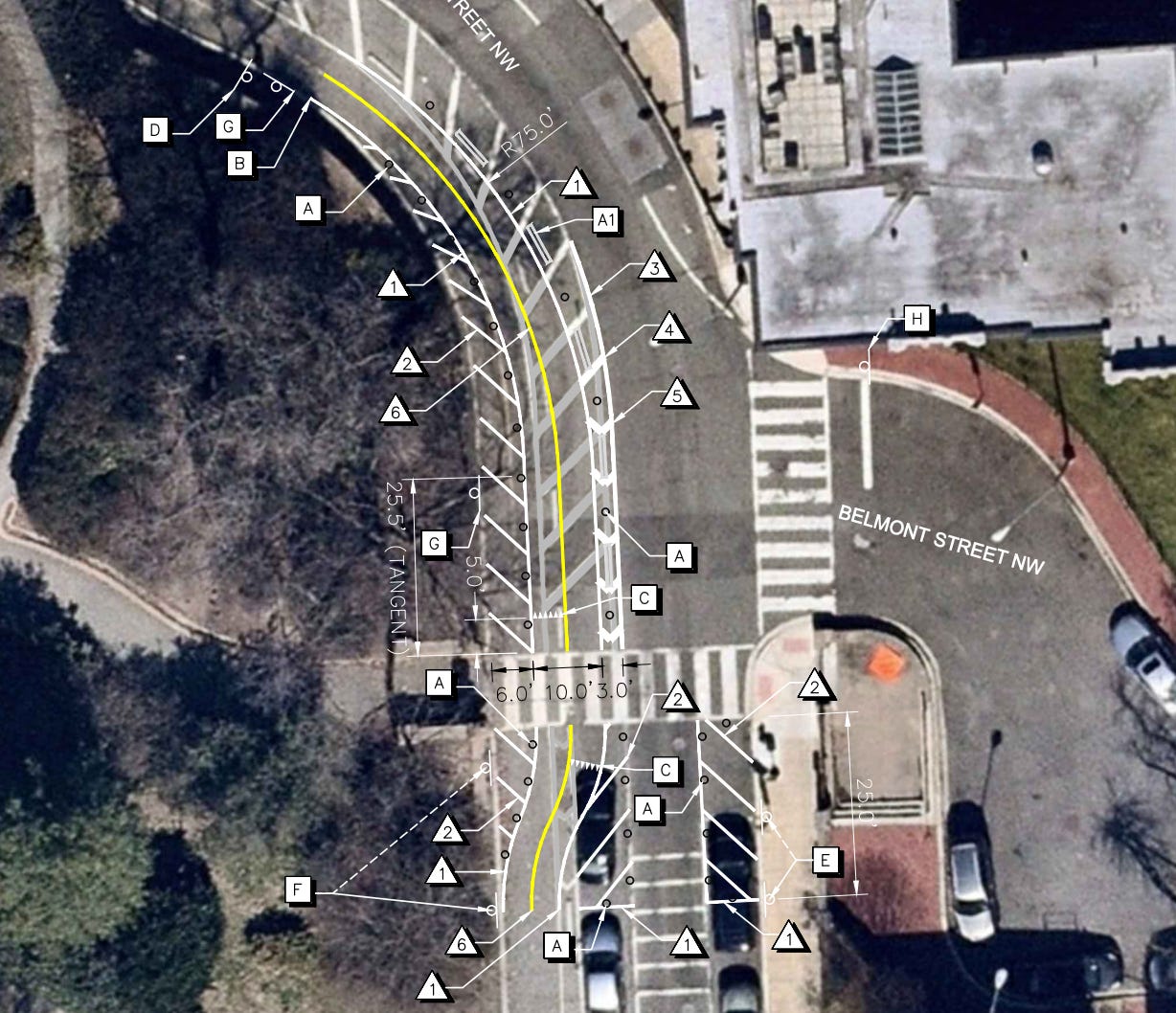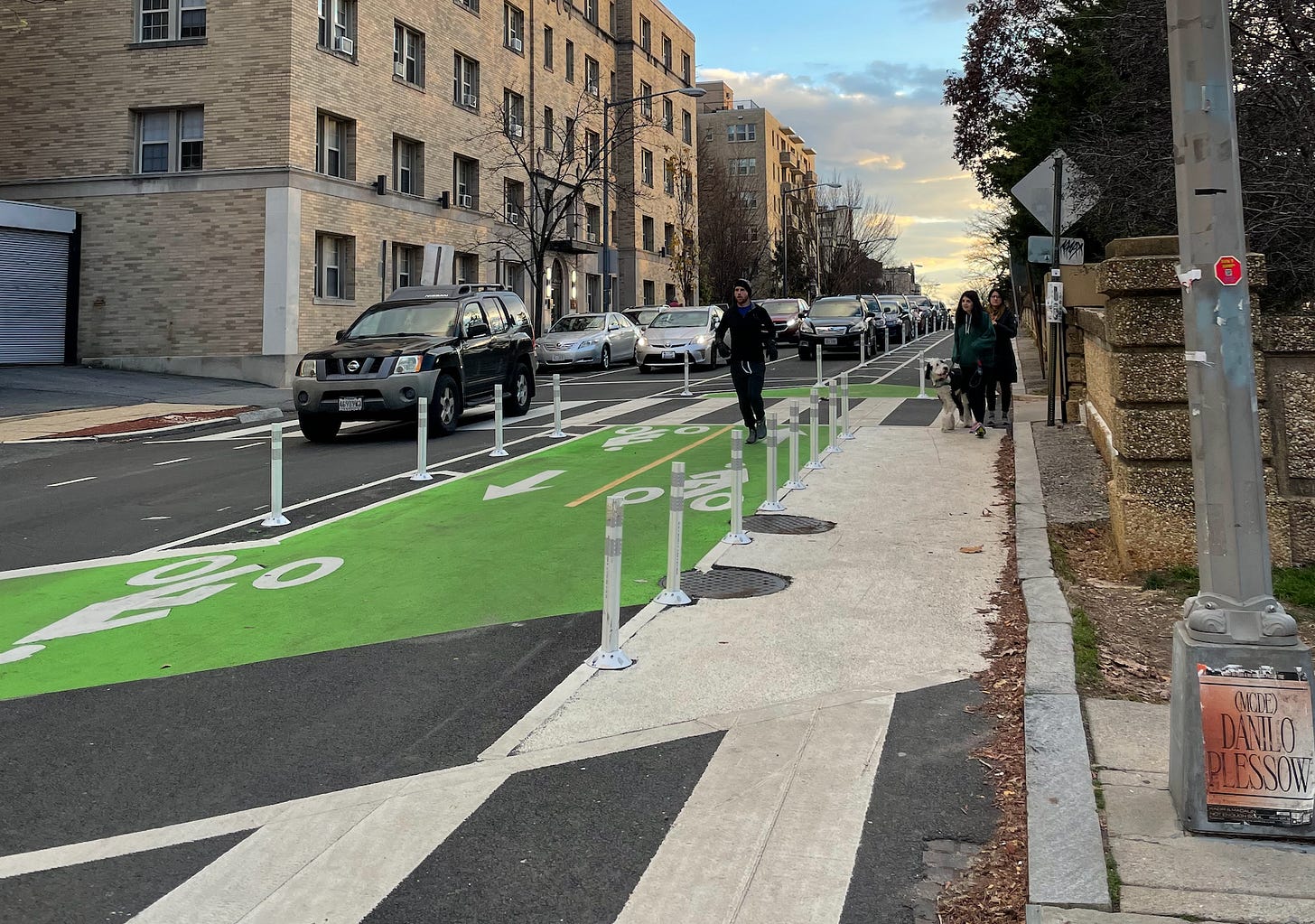There’s More to Life Than the Federal Government
Local government has a huge impact on your life—and you can make a difference!
People often ask me if life in DC is noticeably different between presidential administrations. The assumption seems to be that, however big the changes are between presidents for the rest of the country, they must be even more significant in the capital city.
I always respond that between Obama, Trump, and Biden (and the changing Congresses along the way), life has changed for government-related reasons—but overwhelmingly having to do with local government, not federal.
Some of the biggest government-related changes that affect me on a regular basis have been:
Enhancements to pedestrian safety, a significant expansion of protected bike infrastructure, and improvements to the bike-share system
Various improvements to metro service, including cell-phone service in tunnels, more weekend service, better reliability, and an extension to Dulles Airport
Various improvements to bus service
Renovations of parks and libraries, including the central library
Creation of “streateries”: restaurant seating in what used to be on-street parking spots

I’m probably forgetting some things, but notice a pattern: very little of this has to do with the federal government!
I know a lot of people who are unhappy about last week’s federal election results, and are currently spending lots of time doomscrolling on social media or freaking out about unknowable potential consequences of a level of government that they have little control over. I don’t think this is a productive use of mental energy.
I’m never going to say “don’t pay attention to the federal government”—it’s obviously important!—but there’s so much more to life than that. There’s so much more to government than that.
In City of Yes, Ryan Puzycki writes:
President Biden has the power to launch a nuclear warhead, but he can’t find you childcare, or dispatch an ambulance, or cut your property taxes, or make it easier to build more housing. He can’t pick up the trash on your street or lower your utility bill. He can’t solve your city’s homelessness problem or make the buses run on time.
Joe Biden can’t pave your potholes.
Perhaps these issues seem trivial in the face of global catastrophes, but when you’re faced with real life-and-death emergencies—well, suddenly what’s important seems a little closer to home. Shouldn’t more people care about who we put in charge of the vital city functions that impact our everyday lives? Yet most of us focus more on elections where our vote is a rounding error and ignore the local races where … every vote counts.
Now, more than ever, is a great time for local civic involvement.
From drawings to delivery
Several years ago, I learned that DC’s Department of Transportation was studying how to improve pedestrian safety at intersections in a certain neighborhood using quick-to-implement solutions. I attended a virtual meeting where they presented the draft list of intersections.
Upon seeing the selection criteria, I thought of two specific intersections that weren’t on the list but had safety problems that had always bothered me. Could this be the opportunity to get something done about them?!
So after the meeting, I emailed the team with detailed drawings of what I was proposing for the two additional intersections:
Several months later, the Department of Transportation released their final list of intersections—which now included the ones I proposed. What’s more, their proposed designs were nearly identical to what I suggested!


I obviously can’t take full credit, as the real work was done by their staff, and others may have also made this suggestion. But I can’t help but think that my suggestion likely made a real difference.
These were implemented several years ago—yet every time I pass them (which is multiple times a week), I still feel an immense sense of pride. I call them “my babies.” For all I know, these may have helped avoid people getting injured, and they certainly make life more convenient.
I know many other people in DC who have been able to improve their communities and address local quality-of-life issues through their Advisory Neighborhood Commissions, which are elected committees of local residents.
So see what meetings your local government is having and if there are opportunities for community engagement or feedback. Get involved in neighborhood organizations or your child’s school. Participate in volunteer activities, like planting trees. Write to your council member with suggestions of specific, achievable things that you’d love for them to advocate for.
You, too, can make a difference in your community—in ways that you can see every day!
There’s more to life than the federal government. What will you do to improve life where you live?








